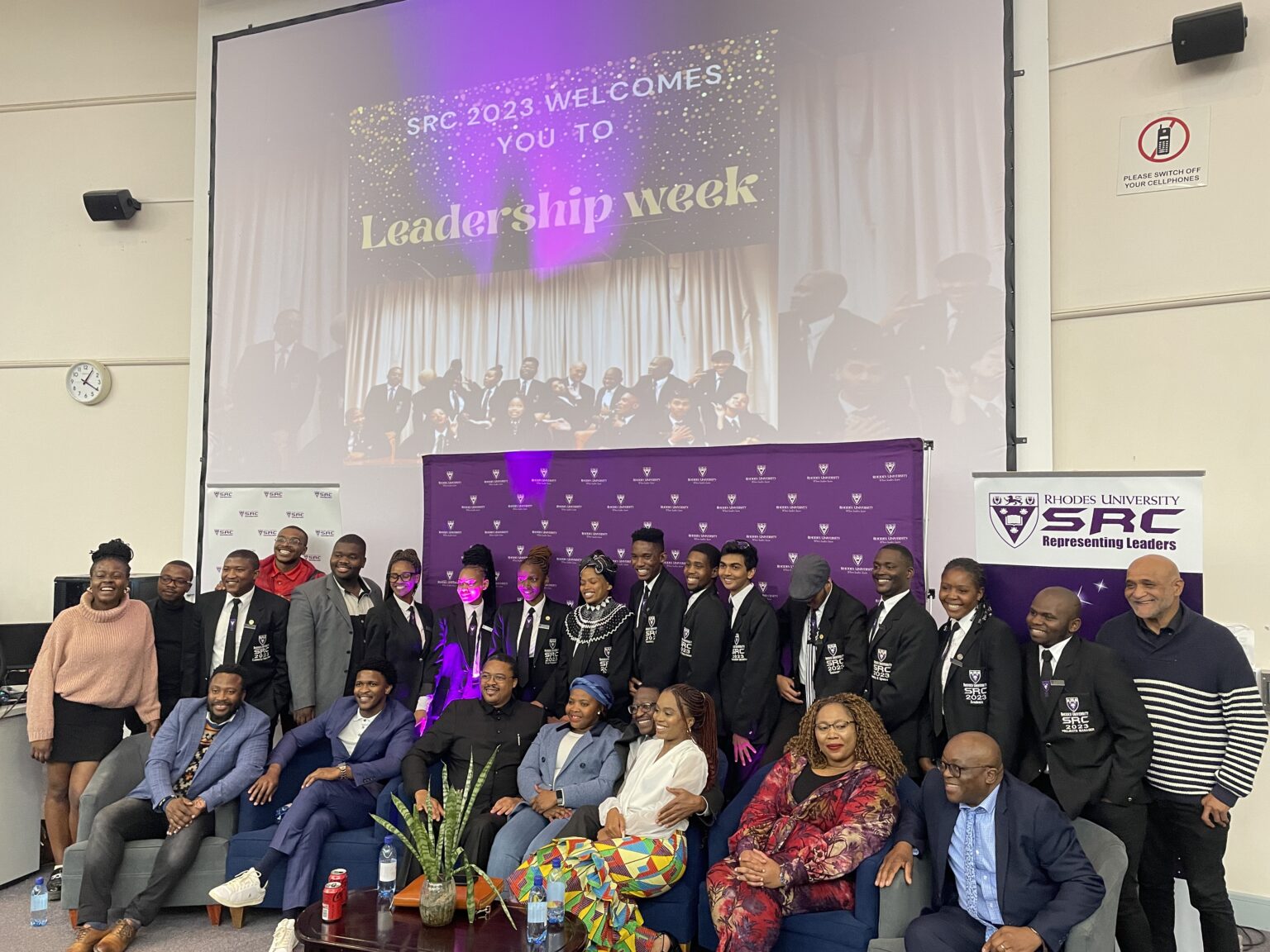By Buhle Andisiwe Made
Rhodes University Student Representative Council (SRC) of 2023 hosted the second day of Leadership Week ahead of the SRC 2024 elections. The theme for Tuesday, 8 August, panel discussion was ‘Generational Mission’ with keynote Speaker, Honorable Mlibo Qoboshiyane, politician and Deputy Speaker of the Eastern Cape Provincial Legislature.
The panellists for the day included: Dr. Siyabulela Mandela, regional project manager for East and Southern Africa at Journalists for Human Rights (JHR) and writer; Dr. Ongama Mtimka, a lecturer and researcher at Nelson Mandela University and is executive chair of the South African Political Risk Institute; and, Dawn Mbatha, the Chief Financial Officer (CFO) of the Independent Electoral Commission of South Africa or the IEC; under her leadership, has received a clean audit for the past two financial years of her three years in position.
The thought-provoking discussions focused on the attributes of leaders and the ways in which they should act and lead. SRC 2023 President, Avuxeni Tyala states that her mission is to become the change, she quotes, “It is about becoming the authors of future books, the sources of its references and the architects of theories that will shape its perspective. Our duty is to embrace this mission with courage and conviction.”
Qoboshiyane emphasised that African or Black leaders need to at times, work twice as hard due to their historical struggles and background. He goes on to mention that Black leaders are plagued by the doubt of others – work from Black leaders needs to be confirmed or underwritten by others in order to be recognised. He states that though there are these challenges leaders face in a society like ours, true leaders, through any sort of adversity, trust their will and their work.
Qoboshiyane sternly warns the audience by saying, “If we do not have confidence in our own convictions things are going to seep through our fingers.” He also spoke about a powerful quality of a leader, and that is one that is trustworthy, even when times are tough. “At times a crisis distinguishes leaders from pretenders,” he added.
Mandela starts by referencing W.B. Rubusana’s body of work, “Zemk’ Iinkomo Magwalandini” which translated means, “There goes your heritage, you cowards”. He uses this isiXhosa proverb as a reference to the plight of leadership in South Africa, simply put, he states that youth are cowards. Mandela goes on to mention that though the late Nelson Mandela believed in education, it is not enough, because getting degrees is not an equalizer in this generation, Mandela says.
Education is simply a vehicle of elevation, a tool. Mandela further speaks about the atrocities that occured in the so called democratic South Africa such as the Marikana Massacre, and the Life Esidemeni saga. He points out an idea of economic emancipation, where generations of Qoboshiyane missed too. The youth is stuck in South Africa, inundated with unemployment, graduates face the realities of furthering their studies to basically cross their fingers for a position of employment. He leaves the audience with the question: “What is the purpose then of this generation?”
Mbatha echoes Mandela’s sentiments on education and that it is not enough to ensure success, one needs to be persistent. She asks, “In your position, what are you doing strategically? How are you disrupting the country?”
Mbatha believes that the correct conversations about leadership are happening, and that the youth should articulate what leaders are saying and clearly understanding the process of governance. She ends of by saying that the youth needs to be able to stand out and showcase their individuality and resources – it is merely survival and being qualified is no longer enough.
On the other hand, Mtimka believes that humility is vital trait to possess, as a young person. Mtimka believes one needs to start somewhere, whether it is furthering your studies, being an intern, an extra or even being an au pair if it is a strategic plan to hoist your end goal. He uses the IsiXhosa proverb, “Isizwe sifa ngomnt’ omnye” (a nation can die because of one person) but he argues, “Isizwe siyaphila ngomnt’ omnye’ (a nation can be healed because of one person).
By saying, Isizwe siyaphila ngomnt’ omnye’ it suggests that “Your commitment to your personal development and personal effectiveness as a leader is a matter of national priority, a matter of national communal survival. If it takes a village to raise you then your success may benefit a village,” he said, adding that if a person is going to benefit from the resources of a country, school or organisation, they need to commit to succeeding.
Qoboshiyane concluded the discussion by saying, “We need African solutions for African problems”.


